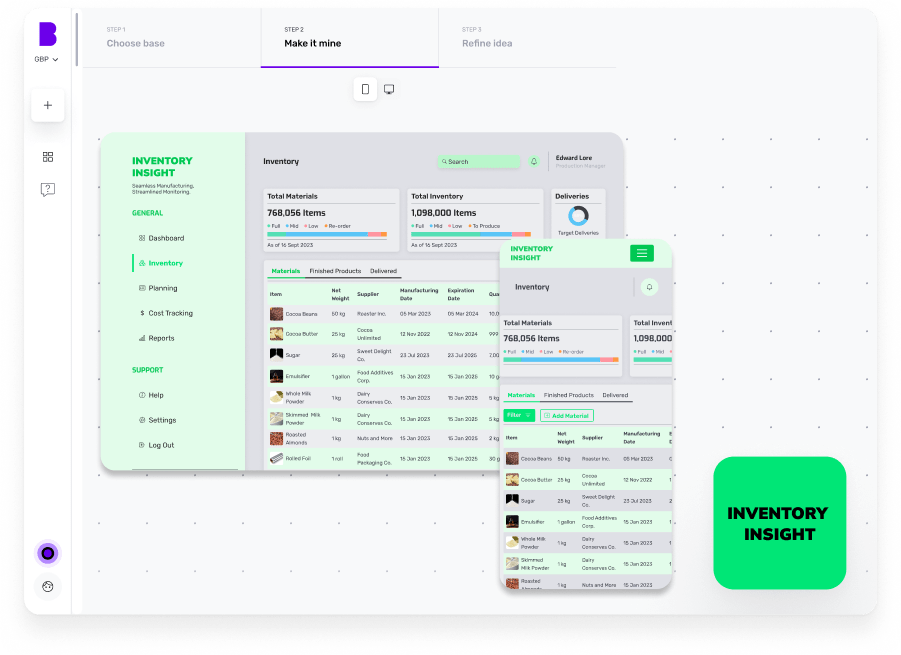Artificial Intelligence (AI) is driving unprecedented change, helping users work more productively at writing, coding, planning and more. But how can companies, rather than individual users, leverage AI at scale?
The phrase as-a-service” is most commonly associated with software, but a wide range of industries are finding value in the as-a-service business model – including AI. AI-as-a-service is a game-changer for business, allowing companies to harness advanced technologies without investing in their own AI models. .
With the rapid uptake of AIaaS, the global AIaaS market is booming. From an estimated $16 billion in 2024, the size of the AIaaS market is projected to grow at a CAGR of 36% until 2030.
In this blog, we’ll uncover the workings, types, benefits and challenges of AIaaS. Plus, as a bonus, we’ll also take a look into what the future holds for AIaaS.
Buckle up!
How does AIaaS work?
AIaaS works by allowing companies to access advanced AI tools and technologies through cloud-based platforms.
Instead of investing in expensive hardware and software, users can simply subscribe to these services online, where AIaaS provides pre-built models and APIs that can be easily integrated into existing systems, allowing for customisation and training on specific data sets. This means you can use AI to automate tasks, analyse data and make predictions without needing to invest in AI systems of your own.
Plus, AIaaS offers a variety of flexible payment models to cater to different business needs. For example, pay-as-you-go allows you to pay only for the resources and services you use. The subscription-based models charge a fixed monthly or annual fee for consistent access to a set of AI services.
Usage-based models determine costs based on the volume of data processed or the number of transactions, which is great for businesses with predictable usage patterns. Other payment modes for AIaaS include enterprise models, hybrid models and more offering unique benefits to best fit their specific requirements and budget.
What are the different types of AIaaS?
There are different types of AIaaS technologies offered to companies. Let’s look at the most popular types of AIaaS. 👇
Bots and digital assistants
Bots and digital assistants are AI-driven tools that can automate routine tasks and provide interactive experiences. Digital assistants can also provide real-time data insights and personalised recommendations, helping businesses make informed decisions.
These include chatbots for customer service, virtual assistants for personal tasks and voice-activated assistants. For example, SupportBot can handle initial customer inquiries, provide 24/7 support and escalate complex issues to human agents.
Application Programming Interface (APIs)
AIaaS providers offer APIs that allow developers to integrate AI into their applications. These APIs can handle tasks such as natural language processing, image recognition and predictive analytics, making it easier for developers to add AI features without deep expertise.
Machine Learning (ML) frameworks
Machine Learning (ML) frameworks provide the tools and infrastructure needed to build, train and deploy ML models. Popular frameworks include TensorFlow, PyTorch and Microsoft's Cognitive Toolkit. These AIaaS platforms also offer managed versions of the frameworks, which work by simplifying the development process.
No-code or low-code ML services
No-code or low-code ML services are designed to make AI accessible to users with minimal programming experience. These platforms provide drag-and-drop interfaces and pre-built models, allowing users to create and deploy AI solutions with ease.
Top AI-as-a-ervice companies
Here’s a list of a few companies leading the way in AIaaS which you can select from for your desired requirements.
Amazon Web Services (AWS)
AWS offers a wide range of AI and ML services, including Amazon SageMaker, Amazon Rekognition and Amazon Comprehend. These services help businesses build, train and deploy ML models at scale.
Microsoft Azure
Azure provides a suite of AI services, including Azure ML, Azure Cognitive Services and Azure Bot Services. These tools are designed to help businesses integrate AI into their applications and workflows.
Google Cloud
Google Cloud offers a variety of AI and ML services, such as Google Cloud AI, TensorFlow and AutoML. These services are known for their advanced capabilities and ease of use.
IBM Watson
IBM Watson is a well-known AI platform that offers a range of services, including natural language processing, ML and deep learning. Watson is particularly strong in industries like healthcare and finance.
OpenAI
OpenAI provides AI models and tools, such as the GPT series (like GPT-3 and GPT-4), which are widely used for natural language processing tasks. OpenAI's services are designed to be highly flexible and powerful, making them suitable for a wide range of applications.
Salesforce Einstein
Salesforce Einstein integrates AI into Customer Relationship Management (CRM) systems, providing predictive analytics, automated insights and personalised customer experiences. It is also designed to help businesses make data-driven decisions.
What are the benefits of AIaaS?
Research shows that 55% of companies are already using AI, while another study using a different methodology, claims that 45% of companies are exploring the implementation of AI. Let’s learn more about what AIaaS can offer.
Cost benefit
AIaaS offers a lower initial investment compared to in-house AI projects, which need significant upfront costs for hardware, software and expert. Ongoing maintenance and operational costs are also lower with AIaaS, as the provider handles updates and support. This results in quicker ROI and substantial savings, making it a more cost-effective and efficient choice.
Boosted productivity
Statistics show that using AI can boost productivity by up to 66%. Automating repetitive tasks with AI frees up employees to focus on higher-value work. Also, AIaaS helps businesses make faster and more informed decisions, leading to more efficient operations and outcomes.
Scalabilty
Gartner claims that 55% of companies are implementing generative AI to improve scalability and efficiency. This is because cloud-based AI services can easily scale to meet changing business needs. So, whether you’re an SMB or a thriving enterprise, you can always tweak your AIaaS according to your requirements.
Improved customer experience
Today, 81% of customers seek quick service and 73% seek enhanced personalisation. All these can be served well with the help of AIaaS, which gives personalised services through chatbots and predictive analytics, powered by user-friendly interfaces and pre-built models, boosting overall customer satisfaction. You can easily use the power of AIaaS and tweak it without requiring technical expertise.
Expert support
Providers of AIaaS offer specialised expertise and support, helping businesses overcome technical challenges and optimise AI performance. Companies which use AIaaS have also seen a record increase in their overall revenue by 6 to 10%.
What are the challenges of AIaaS?
While implementing AIaaS, you might face some challenges, which are listed below:
Lack of transparency
While using AIaaS, you're familiar with the input and the output, but you aren't familiar with the internal workings, such as which algorithms are being utilised, whether they're from an updated version or not. This might cause a lack of transparency or the question of whether you should depend on the final output.
Dependancy on service provider
Incorporating AIaaS into your system might often lead to complete dependency on the service provider, where a single policy change, vendor lock-in or more can directly impact your entire working. Many organisations lack the necessary expertise to fully use AI capabilities, which can hinder the effective implementation and optimisation of AIaaS solutions.
Data quality and inconsistency
Ensuring the quality and consistency of data that is fed into AI models is crucial for accurate and reliable results. This can be challenging, especially with large and diverse datasets. Incomplete, inconsistent or inaccurate data, can lead to biased or unreliable AI outputs. This requires managing data from various sources, which can be complex and time-consuming, requiring strong data cleaning and preprocessing.
Future trends in artificial intelligence-as-a-service
The future of AIaaS is promising, the sector, refining its products and finding new market segments. Looking forward, we can expect more sophisticated and user-friendly AI tools that need minimal technical expertise, making them accessible to a wider range of businesses and individuals.
Cloud providers will continue to enhance their AIaaS offerings with more pre-built models and customisable solutions, for seamless integration into existing systems. The focus on ethical AI and data privacy will become increasingly important, with strong frameworks and regulations to ensure responsible use.
The flexibility offered by the as-a-service model will remain a key driver of adoption, allowing companies to scale their AI capabilities as needed without significant upfront costs. As AIaaS becomes more integrated into everyday operations, it'll drive innovation, efficiency and competitive advantage across various industries.
Conclusion
By embracing AIaaS and preparing for future developments, businesses can harness the power of AI to drive innovation, improve efficiency and stay competitive in an increasingly digital world.
This is where working with the best in the industry significantly increases your chances of successfully building a high-quality app, powered with AI.
Builder.ai helps you build your app efficiently. We:
✅ - Assign you a dedicated project manager, who keeps all stakeholders on your app project aligned and on track — you never need to speak to a software developer or write a single line of code
✅ - Speed up development time by giving you access to a comprehensive library of reusable features, fitted together by AI
✅ - Give you upfront costs and competitive timelines so your project stays under control
If that’s something you’d like to explore, please get in touch 👇
Create robust custom software today
100s of businesses trust us to help them scale.
Book a demoBy proceeding you agree to Builder.ai’s privacy policy
and terms and conditions

FAQs
What's AI as a service?
AI-as-a-service is the delivery of cloud-based AI tools and technologies, allowing companies to access advanced technology without investing in AI systems of their own.
Why is AIaaS important?
AIaaS helps businesses of all sizes make use of advanced technologies to improve efficiency and drive innovation.
How does AIaaS work?
AIaaS works by offering pre-built AI models and APIs through cloud platforms. Users can subscribe to these services, integrate them into their systems and customise them for specific needs, all without significant technical knowledge.
What are the benefits of AIaaS?
AIaaS benefits include cost-effectiveness, scalability, easy integration and access to the latest AI technologies. It allows businesses to automate tasks, analyse data and make predictions without large initial investments.
Who can use AIaaS?
AIaaS is suitable for a wide range of users, from small businesses to large enterprises and even individuals. It's particularly beneficial for those who want to use AI but lack the resources or expertise to develop and maintain their own AI systems.
Gaurav is the SEO Content Writer at Builder.ai. Being an Engineer and Marketing MBA, he has a knack for converting technical jargon into marketing content. He has 8+ years of experience creating content and designing marketing campaigns that drive organic growth for B2B companies and tech startups.










 Facebook
Facebook X
X LinkedIn
LinkedIn YouTube
YouTube Instagram
Instagram RSS
RSS


